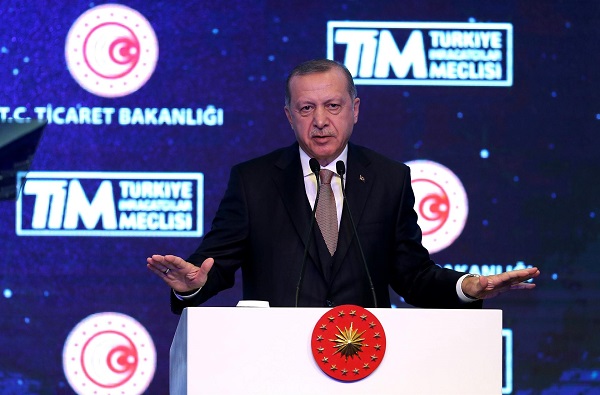Turkey delays Kurdish assault operation
December 31, 2018 | Expert Insights

Turkey will delay a planned offensive against Kurdish forces in north-eastern Syria, President Recep Tayyip Erdogan said.
It is likely that talks with the U.S. president and other officials after the administration’s decision this week to withdraw all U.S. troops from the country influenced the change in plans.
Background
The Syrian Civil War has been going on since 2011. It began during the Arab Spring protests and due to resentment towards the government of President Bashar al-Assad. The war is being fought by several factions: the Syrian government and its allies, a loose alliance of Sunni Arab rebel groups (including the Free Syrian Army), the majority-Kurdish Syrian Democratic Forces (SDF), Salafi jihadist groups (including al-Nusra Front) and the Islamic State of Iraq and the Levant (ISIL), with a number of countries in the region and beyond being either directly involved, or rendering support to one or another faction.
Until 2011, Turkey had a relatively friendly relationship with Syria. Once the civil unrest broke out, the Turkish government condemned the Syrian president Bashar Assad over the violent crackdown on protests in 2011. Turkey for many years has raised concerns about YPG. This is a mainly-Kurdish militia force in Syria and the primary component of the Democratic Federation of Northern Syria's Syrian Democratic Forces. Some have called it the "most effective" force in fighting ISIL in Syria.
Turkish President Recep Tayyip Erdogan has vowed to crush the YPG "very quickly". The nation believes that the group has links to the Kurdistan Workers Party (PKK), a banned militant group. It has also stated that this militia is a danger for its security.
Analysis
Erdogan, who had threatened an imminent military operation in areas where U.S. forces are present, said that he welcomed President Trump’s decision to pull out of Syria, where about 2,000 U.S. troops are partnered with Kurdish-led fighters battling the Islamic State.
“We welcome those statements with pleasure and an equal amount of caution,” he said of Trump’s announcement Wednesday, adding that an operation would take place “in the coming months.”
“Our phone call with President Trump, along with contacts between our diplomats and security officials and statements by the United States, have led us to wait a little longer” before launching the offensive, he said.
He also said that Turkey will have the right to move against “terrorists” in northern Syria after one month, which “we think is enough [time] for the U.S. to withdraw,” Turkey’s state broadcaster reported.
Turkey sees Kurdish fighters both at home and in Syria as a threat to its national security — and the U.S. alliance with Kurdish forces, supported by the United States as effective fighters against the Islamic State, has long angered Turkish officials.
Turkey and the United States are officially NATO allies, but relations have deteriorated sharply over the course of the Syrian war.
The two sides narrowly avoided a military confrontation earlier this year in the northern Syrian city, Manbij, where U.S. troops were stationed with Kurdish-led fighters after having ousted the Islamic State.
Turkey and the United States are now conducting joint patrols in the area around Manbij, but Turkey has been frustrated with the progress and wants to see all Kurdish fighters routed from the border areas.
Turkey shares a 500-mile-long frontier with Syria and wants to prevent Kurdish militias from using the region to launch attacks inside Turkish territory. Turkish forces have fought a decades-long war with the Kurdistan Workers’ Party, or PKK, inside Turkey. The PKK and its Syrian affiliate, known as the People’s Protection Units, or YPG, have strong ideological and operational links.
However, while Erdogan vowed to “cleanse” north-eastern Syria of both the YPG and Islamic State remnants, his plan to delay the operation appeared, at least for now, to head off a potentially disastrous assault on one of the most volatile areas of Syria.
There, Kurdish-led fighters, Iranian-backed militias and U.S. troops operate in proximity. The region, east of the Euphrates River, is also home to lucrative oil fields and borders Iraq.
Assessment
Our assessment is that the current development is likely to broaden the surface area of the conflict taking place within Syria, one of the most embattled regions in the world. This also complicates the relationship between the US and Turkey. The two nations are members of the NATO alliance and with this development, one NATO member is trying to take down a group which is trained and armed by another.








Comments